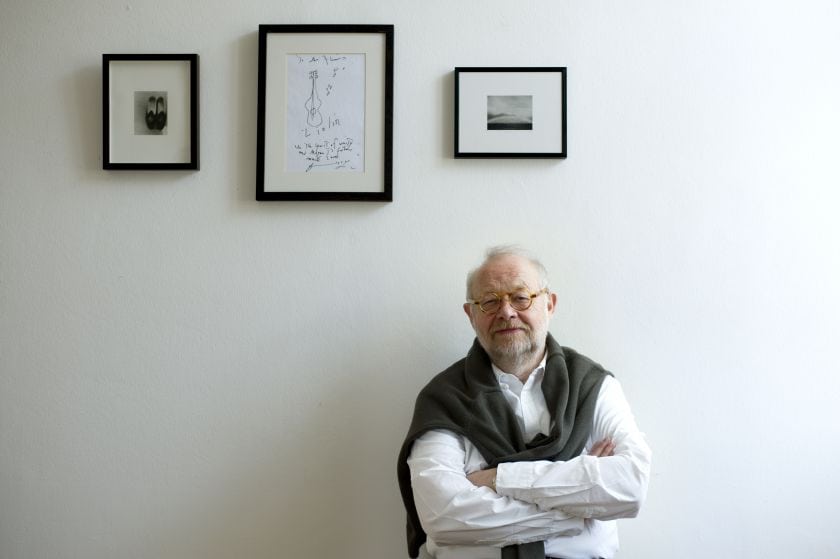The Salzburg Festival mourns the death of Jürgen Flimm
The Salzburg Festival mourns the death of Jürgen Flimm

“Jürgen Flimm, one of the most important and successful stage and theatre directors in the German-language region, left his mark on the Salzburg Festival in many ways. Directing operas and plays, he enjoyed triumphal success with audience and critics alike. As the Festival’s director of drama, he created highlights such as a new Jedermann and championed young artists in lasting ways. And as artistic director, he managed to weave together sophisticated overarching themes, balancing tradition and modernism,” said Artistic Director Markus Hinterhäuser in a first statement.
Jürgen Flimm’s success story at the Salzburg Festival began in the late 1980s, when he cast an outsider’s glance at Austrian theatre: while artistic director of Hamburg’s Thalia Theater, he made his Salzburg directing debut in 1987 with Ferdinand Raimund’s Der Bauer als Millionär, with a cast including Otto Schenk as Fortunatus Wurzel and Gertraud Jesserer as Zufriedenheit. Two years later, his legendary production of Johann Nestroy’s Das Mädl aus der Vorstadt followed, with Gertraut Jesserer in the role of Frau von Erbsenstein, Otto Schenk as Schnoferl, Karl Merkatz as Knöpfel and Louise Martini as Madame Storch. In 1991 he directed Hugo von Hofmannsthal’s Der Schwierige, with Karlheinz Hackl in the title role and costumes designed by Karl Lagerfeld.
In 1993 Flimm’s production of Monteverdi’s L’incoronazione di Poppea was a great operatic success during the Salzburg tenure of Gerard Mortier. “The artistic director of Hamburg’s Thalia Theater has pulled off a perfect balancing act on the perilous Salzburg high wire: he has staged a piece that is all about the circumstances of its own time – and yet will always be avant-garde…”, Jürgen Kesting wrote enthusiastically. Eleven years later, he landed another “opera hit” at the Festival together with Nikolaus Harnoncourt: in 2004, King Arthur by John Dryden and Henry Purcell was well-nigh sold out for all eleven performances.
In October 2001 Jürgen Flimm succeeded Frank Baumbauer as the director of drama of the Salzburg Festival. For three years, he was not only responsible for a demanding programme, but also for some of the Festival’s economic success stories. Thus, Flimm commissioned the Bavarian director Christian Stückl to create a much-acclaimed new production of Jedermann in 2002, shown on Cathedral Square through 2013.
After two years as artistic director of the Ruhrtriennale, Jürgen Flimm returned to Salzburg in 2006 as the Festival’s new artistic director. For 2007, the first season of his tenure, he chose the motto “The Nocturnal Side of Reason”, exploring the darker sides of our apparently enlightened life. In 2008 he juxtaposed the inextricably entwined subjects of Eros and Thanatos: “For love is strong as death”. Both years, audience demand exceeded all hope.
The Festival’s visitors proved particularly curious about rarities such as Haydn’s Armida and Berlioz’ Benvenuto Cellini, and about the reorientation of the concert programme, for which Markus Hinterhäuser was responsible, enriching it with very special programmatic and casting constellations. “Game of the Mighty” was the motto of the 2009 Salzburg Festival.
Both Luigi Nono’s Al gran sole carico d’amore at the Felsenreitschule and the opening production of Handel’s Theodora set standards for audience and critical success alike. The 2010 season bore the motto “Where God and Man Collide, Tragedy Ensues”, focusing on myths and their potential to symbolize fundamental human experiences and situations: “This time we are rather like archaeologists opening up a door and going down to explore and remind ourselves about the interrelated origins and contradictions of our history and of our civilization. We want to try and find traces of what we still are nowadays and follow up memories. We also want to show how the ancient themes of tragedy are timeless and still relevant,” Flimm summarized.
One issue dear to Jürgen Flimm’s heart was supporting young artists at the Festival. He initiated the Young Directors Project, a competition for young drama directors which took place from 2002 to 2014 and proved a launchpad for great theatrical careers for many directors – including Alvis Hermanis, for example. The Young Singers Project, a highly successful kickstarter for international vocal careers for the past 15 years, also began as one of Jürgen Flimm’s initiatives.
Together with Markus Hinterhäuser, director of concerts at the time, Flimm also succeeded in repositioning the Salzburg Whitsun Festival, which presented unknown masterworks of the 18th-century Neapolitan School from 2007 to 2011 under the artistic leadership of Riccardo Muti, and featuring Muti’s Orchestra Giovanile Luigi Cherubini.
After four successful seasons, Jürgen Flimm moved to Berlin to take on the artistic directorship of the State Opera Unter den Linden.
